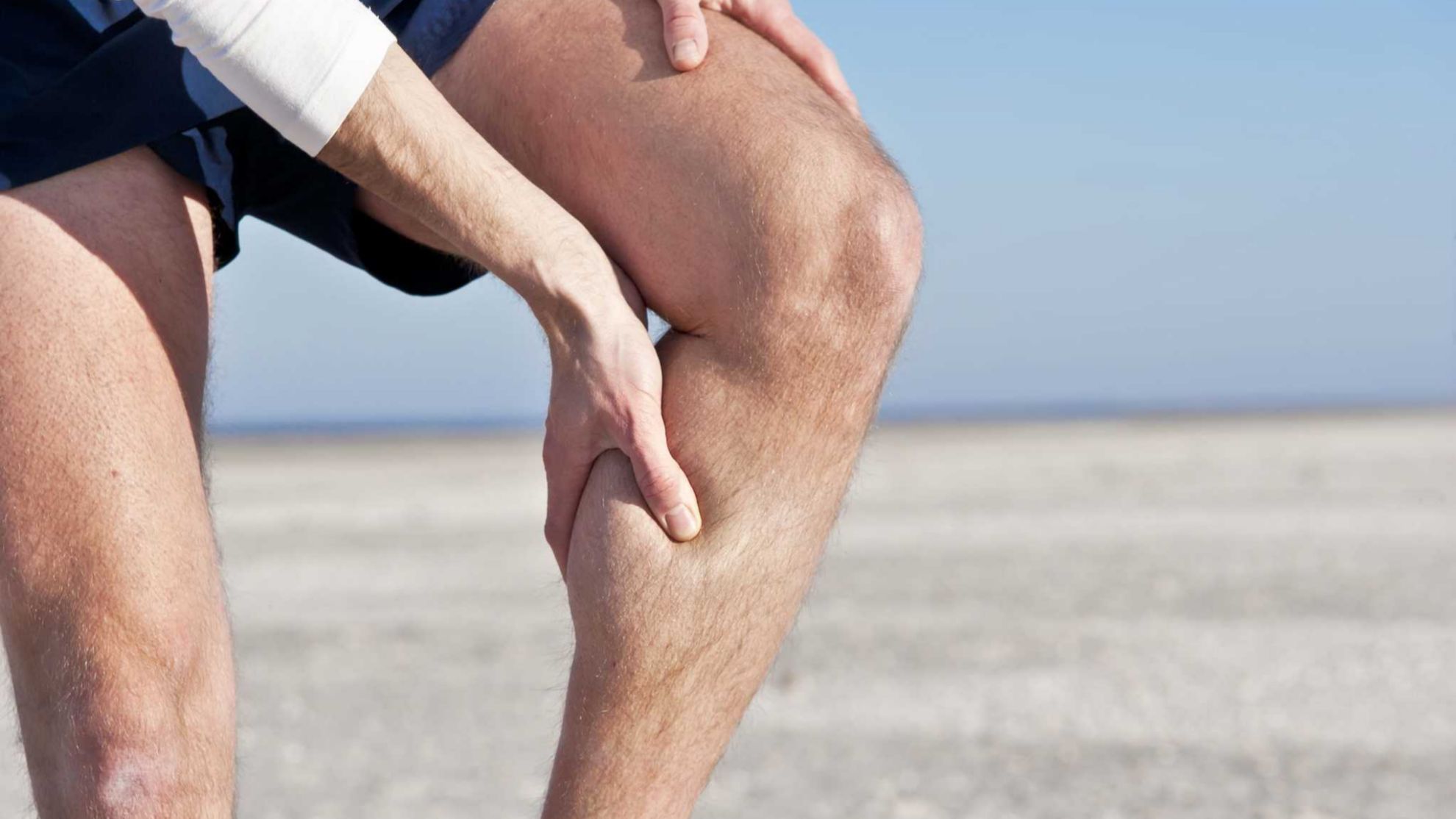Generally, calf muscle pain causes signs of cramps or muscle tension. However, this condition can also signify a more serious condition. Then, how can the conditions cause pain, and how can they be overcome?
Check out the full explanation below.
Some common causes of sore calves

Every time you walk or run, you must move the muscles in your calves. The calf of every human being consists of two muscles, namely the gastrocnemius muscle and the soleus muscle. These two muscles meet at the Achilles tendon and connect directly to the heel.
Therefore, every movement of your legs must use these two muscles. However, various health problems in the feet can cause calves to feel sore.
The following are some of the health problems that may be calf muscle pain causes.
1. Muscle cramp
Pain in the calf is usually caused by muscle cramps when the muscles suddenly contract.
Usually, this condition is normal if you are just starting a new exercise, so the muscles are still not used to it.
In addition, muscle cramps can also occur when you are dehydrated or have a mineral deficiency.
Even so, you don’t have to worry too much. The reason is muscle cramps that can also appear in the calves and cause pain can heal slowly.
2. Calf strain
As mentioned earlier, the calf consists of two muscles directly connected to the heel bone. Well, using the muscles in the calves excessively can cause injury to these muscles.
If so, there will usually be pain that appears suddenly in the calf.
Not only that, but when you experience tense muscles, you may also experience several other conditions, such as:
- Pain that appears suddenly in the area behind the foot.
- Calves feel stiff and weak, especially when you walk.
- You have difficulty getting up and resting on your feet.
- Bruises appear on the calf after 1-2 days.
3. Achilles Tendinitis
Achilles tendinitis or Achilles tendon injury is a serious condition that calf muscle pain causes.
This condition occurs due to overuse of the Achilles tendon. The Achilles tendon is the tendon that connects the two calf muscles to the heel bone.
The structure of the Achilles tendon weakens with age, making it more susceptible to injury.
However, you may injure this tendon if you overuse it. Usually, this condition often occurs in people who suddenly exercise intensely.
4. Sciatica
Sciatica is an injury to the sciatic nerve. These nerves run from your lower back to your hips, buttocks, and legs.
However, this condition usually only affects one side of the body.
Sciatica often occurs when a bone spur in the spine or a narrowing in the spine presses on the sciatic nerve.
That can cause inflammation, pain, and numbness in the affected leg, including the calf.
5. Peripheral neuropathy
Painful calves can also occur as a sign of peripheral neuropathy. This condition occurs due to damage to the nerves outside the brain and spinal cord.
Besides being able to cause weakness and numbness, this condition also causes pain that generally appears in the hands and feet.
Peripheral neuropathy is a condition that may result from a traumatic injury, infection, metabolic disorder, or hereditary disease.
This condition can occur due to exposure to toxic substances. However, the main cause of this condition is diabetes.
6. Deep vein thrombosis
Deep vein thrombosis is the formation of a blood clot in one or more veins in the body.
However, this condition generally occurs in the foot area. Deep vein thrombosis can cause pain to swell in the leg area, including the calves.
However, not infrequently, this condition also appears without any symptoms. Blood clots in the leg can also occur if you do not move your legs for a long time.
For example, when you have recently had surgery or an accident, have traveled long distances, or have to undergo bed rest.
Overcome sore calf muscles
You can treat calf pain according to the cause. You can resolve this condition if you address the cause.
Therefore, it is better to have this condition checked by a doctor to get a diagnosis.
That way, you can take the appropriate treatment according to your condition.
There are several easy ways to help relieve calf pain.
1. Rest

The most effective and easy way to overcome this condition is to rest the sore calf.
Usually, sore calves occur due to physical activity that is too strenuous.
Therefore, reducing activities that are too strenuous is enough to overcome them.
Rest allows you to relieve other accompanying symptoms, such as acute inflammation.
However, you may need a walking aid if the symptoms are severe.
2. Compress
In addition to resting, the Australian Ministry of Health’s Health Direct recommends that you treat sore calves using a compress, either with ice or warm water.
Usually, this method is effective enough to relieve pain due to tendon problems.
Meanwhile, the use of cold or hot compresses depends on your condition.
Compress for about 20 minutes and do it several times until the pain in the calf subsides.
3. Stretch
You can also relieve calf pain by stretching the muscles.
It will be very useful, especially for reducing pain due to cramps or muscle tension.
Not only to overcome, but you can also stretch the muscles to prevent sore calves in the future.
4. Physical therapy
Usually, it would be best if you did physical therapy for this musculoskeletal disorder at a level classified as severe.
A physical therapist will help you deal with calf pain that cannot be relieved by regular home treatments.
Physical therapists usually use different techniques to restore the strength and mobility of the injured calf.
The physical therapist will try their best to restore the calf’s condition to normal.
5. Drugs
In certain conditions, the doctor may prescribe drugs to reduce pain in the calf.
Drugs used usually function to relieve pain, such as NSAIDs.
The use of drugs should follow a doctor’s prescription. Usually, this can help with pain from tendinitis, muscle tension, and muscle cramps.




